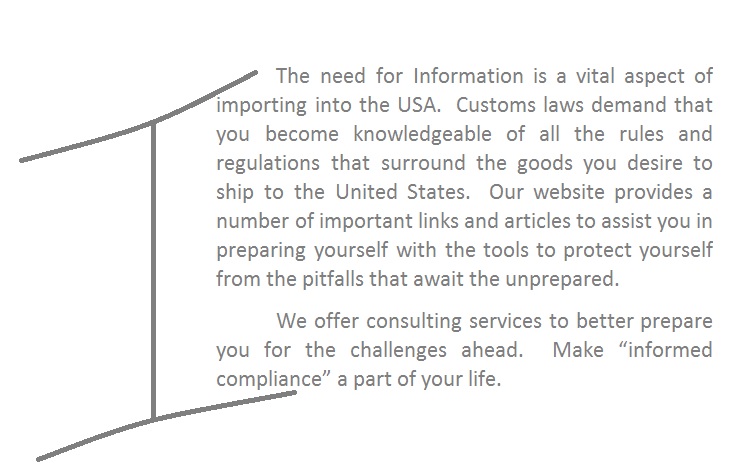RESOURCES – INFORMATION
Posted by stevelsandershome on Tuesday, January 3, 2012 · Leave a Comment
Filed under Crossing the Border · Tagged with
When you ship or send goods to the U.S.A., the question of "valuation" may arise. What you need to know is that the issue of how to value your goods for export to the U.S.A. are part of a very complex law in our U.S. Customs Regulations (CBP).
The U.S. valuation law is very similar to the valuation law first developed and implemented by Canada Customs. The basic bottom line concept on most imports deals with the goods being valued (appraised) at the actual transaction value. That is, the price paid or payable for the merchandise. Transaction value is commonly used in arms length (unrelated) sales where a specific relationship did not impact the price paid or payable for the goods.
The term Related means within the sale of the goods, that actual family relations are involved, or that there are mutual owners in the selling company and purchasing company. CBP feels that family relationship or mutual owners in the seller and the buyer could impact the value paid or payable for the goods..
In related sales, transaction value can still be used, provided it can be proven (via a test case) that the relationship did not impact the price paid or payable for the merchandise.
Further protocol flow of the valuation law is a bit more complex and deals with terms and concepts such as "Transaction Value of Identical or Similar Merchandise", "Computed Value", "Deductive Value", and "402f" (Customs last method of appraisement) when other valuation concepts determined.
The bottom line in this law is making sure that the U.S. Government is receiving it's full amount of duty money's and fees. Undervalued importations could result in a loss of revenue to the U.S. Government to which the government could pursue full reimbursement and penalty actions.
Please remember that declaring a proper value on your shipment for U.S. Customs purposes is a matter of law.
